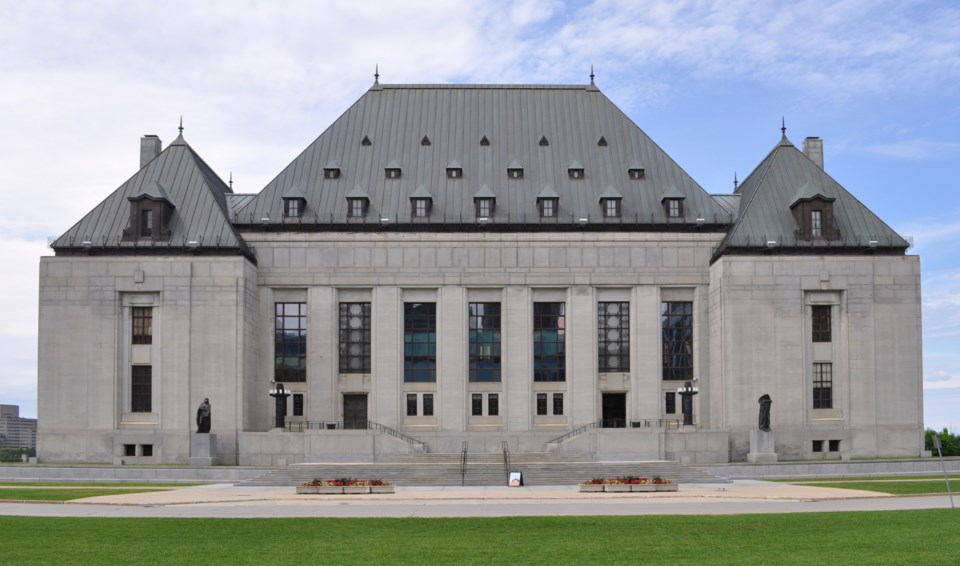Just over half of readers surveyed in an online poll this week said that the notwithstanding clause should be harder to use than it is now, but not taken out of the Constitution entirely.
The remainder were divided between those who would get rid of it and those who would leave it unchanged.
The notwithstanding clause, or section 33 of the Charter, allows Parliament or a provincial legislature to pass laws overriding some, but not all, rights. (The affected sections are 2 and 7 through 15: you can read those sections here.)
On paper, those are some crucial freedoms, such as freedom of religion and expression, and some rights related to the criminal justice system, like the right not to be arbitrarily imprisoned, or not to be subject to cruel or unusual punishment.
Given the dark history of what governments — including Canadian governments — have done to people, a tool like this has seemed alarming to many since it became law.
"The notwithstanding clause is a dagger pointed at the heart of our fundamental freedoms, and it should be abolished," constitutional scholar Eugene Forsey wrote in 1989.
From time to time, frustrated politicians, nearly always in Quebec, rarely elsewhere, have found it irresistible — though none have gone quite so far as a law passed in Quebec in 1982 which applied the notwithstanding clause retrospectively to every law passed by the province in the past and also to every new law passed up until 1985. The Supreme Court upheld this as constitutional in 1988.
For better or worse, in practice the main thing holding politicians back seems to be public disapproval. Ontario premier Doug Ford tried to use the clause during a labour dispute in 2022, but backed down. In 2021, however, the province did use it to amend the Election Finances Act.
In April, federal Conservative leader Pierre Poilievre seemed to hint that a future government led by him would use the clause to pass laws to tighten the bail system. (It has never been used federally.)
"We will make them constitutional, using whatever tools the Constitution allows me to use to make them constitutional," he told a police conference. "I think you know exactly what I mean."
The largest group of readers this week favoured a reform under which the notwithstanding clause could only really be used with cross-party support in a legislature, beyond a government caucus whose members can be more or less ordered to vote for it.
Men and women didn't have sharply divided views:
Broken down by age, the younger the reader, the more inclined they were to leave the clause as it is:
There is a strong partisan divide, with Conservatives far more inclined to keep things as they are:
Which continues, more or less, in the approval graphs for Trudeau and Poilievre. Those with strong disapproval of Poilievre are more inclined to want to abolish it entirely, while we don't see a strong mirror effect on the Trudeau graph. People with strong approval of Poilievre and strong disapproval of Trudeau tend to be in favour of keeping it.
University graduates are more inclined to abolish it:
How does the issue intersect with libertarian points of view? In general, people who favoured fewer restrictions on both firearms and drugs (legalizing cannabis was a good thing, legalizing psilocybin and MDMA would be a good thing) would also get rid of the notwithstanding clause, though the margins aren't large in some cases. However, there's an interesting exception to this pattern.
By a reasonably strong margin, people who condemn the federal government's use of the Emergencies Act in 2022 support keeping the notwithstanding clause. This might seem paradoxical; the best I can come up with is that support for the notwithstanding clause has come to be part a Conservative-associated cluster of views, along with support for the convoys/occupations/blockades. It would interesting to see whether that's also true of PPC voters, but our sample size isn't big enough to establish that.
Interestingly two questions we use to look for a broadly traditional point of view, opinions about the monarchy and the separate school system, show no real contrast at all.
And, though the spread isn't huge, cat people are the group most inclined to get rid of the notwithstanding clause, and dog people the most inclined to keep it.
